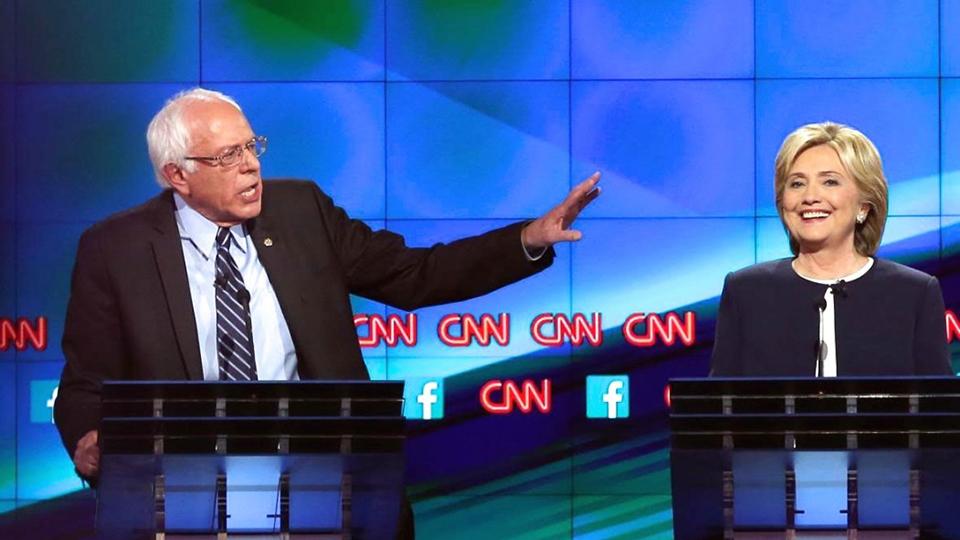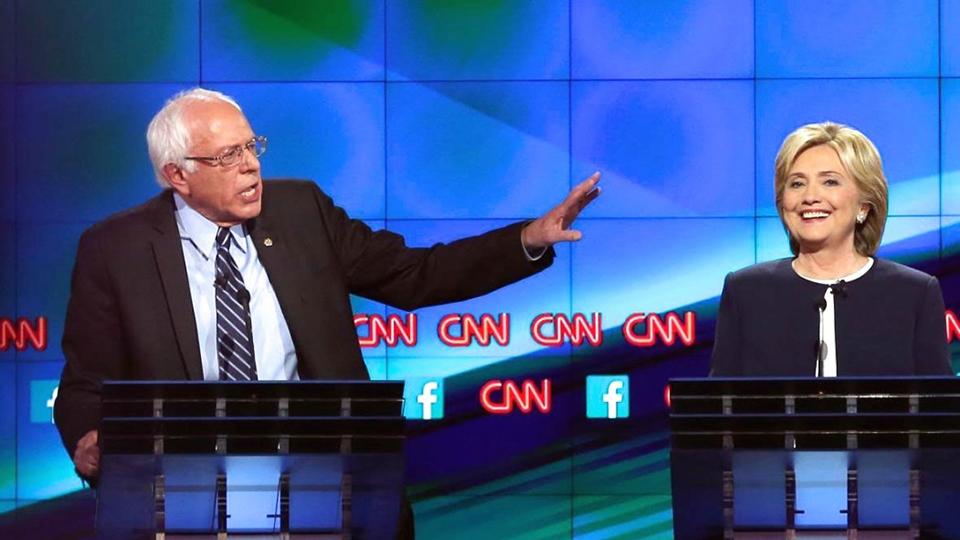To say this election year is interesting is an understatement. While the Republican candidates havedebated to see who gets the nomination, on the Democrats side, the media has acted like they’ve already chosen Hillary Clinton. However, I don’t think Clinton is the clear-cut winnereveryone thinks she is. The Vermont senator, Bernie Sanders, might have a good shot at the nomination.
As of April 9, Clinton has 1,749 delegates while Sanders has 1,061. While Clinton is still in the lead, this isn’t the victory everyone assumes it is, especially since there are 1,955 delegates still available. New York, Connecticut, Delaware, Maryland, Pennsylvania, Rhode Island, Indiana, West Virginia, Kentucky, Oregon, California, Montana, New Jersey, New Mexico, North Dakota, South Dakota and the Capital are still all up for grabs.
Clinton is campaigning on a platform of improving the Affordable Healthcare Act, limiting unaccountable money in politics, Common Core educational initiative and American influence in the Middle East. The Sanders campaign has been focusing on fighting the wealth gap, dealing with global warming, universal healthcare and decreasing student debt.
The kind of language the media has used when covering the democratic side of the election is very odd. The headlines seem to always focus on Clinton, even when she loses. No networks are covering Bernie’s rallies. It’s gotten so bad that a protest called Occupy CNN started on April 3. Over 1,000 protesters are voicing their anger over perceived bias against Sanders on CNN’s part. It should be noted that CNN owner, Time Warner, is Clinton’s seventh largest contributor.
occupy.com
Another thing is the debate in April. There’s a lot of back and forth about a debate in New York before the primary on the 19th. At first, it seemed like the Clinton campaign would refuse any debate offers.
On March 28, in an interview with CNN, Clinton campaign strategist Joel Benenson said, “The debates have been very good, but Senator Sanders doesn’t get to decide when we debate, particularly when he’s running a very negative campaign against us. Let’s see if he goes back to the kind of tone he said he was going to set early on. If he does that, then we’ll talk about debates, but we’re not going to talk about it.”
This was a poor strategy. This could create the image that Clinton couldn’t handle criticism and isn’t tough. This might not play well with voters.
The Clinton campaign then backpedaled and they proposed a debate for April 4. The Sanders campaign rejected the debate date. According to a statement by Sanders spokesperson Michael Briggs, “The idea that they want a debate in New York on a night of the NCAA finals — with Syracuse in the tournament, no less — is ludicrous. We have proposed other dates, which they have rejected. We hope we can reach agreement in the near future.” Both Sanders and Clinton agreed to a debate on April 14. This might show that Clinton could be nervous with continued debates with Sanders.
The fact that Sanders is this far with little media exposure is amazing but he is not a clearwinner and he could lose. On the other hand, Hillary could easily lose as well. There is no clear winner in the race right now. This Democratic primary is going to be a photo finish.





































